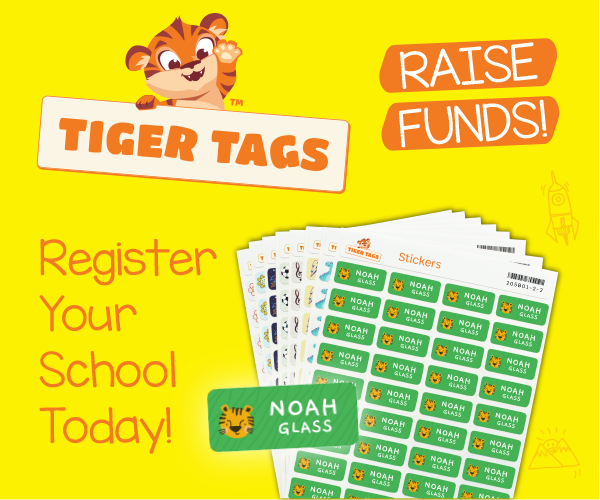PTAs often turn to local companies for donated raffle prizes or Easter eggs, but that’s as far as the relationship goes. Developing successful business partnerships that are mutually beneficial can bring greater rewards. Here’s how to find the right company and achieve ongoing support.
Find a partnership that works
Start by looking at your existing connections. Who will be easier to approach and more inclined to offer support? Ask around – do current PTA members, school staff and parents have any connections from which you can benefit?
Next, search online for funding and corporate social responsibility (CSR) schemes in your area. Check charity websites to see which companies already give support. Phone around businesses such as banks, insurers, supermarkets and utilities providers, which are generally known to help local causes. Are there any large corporations based nearby whose business is relevant to your fundraising objectives for the year?
There are advantages to approaching national companies, of course. They may have dedicated CSR teams, and more money to spend too. But large corporations receive multiple requests every day, making it harder to stand out from the crowd unless you have a unique project or request. Local companies have a more personal connection to the community, especially if they have ties to the school.
Approaching a business
Aim to speak to the decision-maker. If the person you contact doesn’t have the authority to say yes or no, find out who does and the best way to contact them. A quick call to the company’s offices or some online research should provide the right information. LinkedIn is useful in determining who works where and their position in the organisation.
Contact them by phone or email or, if you want to stand out from the crowd, why not write them a letter? Clearly describe what you need and what you’re fundraising for. Suggest three projects the company might sponsor, at varying levels of commitment. Giving people a choice means they’ll be more inclined to pick one rather than say no altogether. Try to link your request to the company. Why are they the perfect sponsor?
Remember that companies might also donate products, provide volunteers, send guest speakers or run educational trips.
Think about what’s in it for them too. What you can offer in return for their support is crucial, especially in the current climate. Are you able to provide advertising on newsletters or social media, publicity at your next event or a logo on your list of raffle prizes? Do your research and prepare some data: how many parents open school emails? What’s your school’s website traffic? How many people are in your Facebook group?
If you’ve already generated publicity around any current fundraising projects or partnerships, use it to show any potential business partners what you’re capable of.
Emphasise how companies that invest in the community set themselves apart from the crowd. Tell them how their support will impact on the lives of the children. Be passionate about your cause.
Working together
Generating publicity for your sponsors is trickier at the moment, as physical events are limited. With sponsored stalls and event programmes generally off the table, what can you still do?
Funding equipment: Could a business sponsor the cost of a Zoom membership so that you can hold more virtual events? Make use of the captive audience to promote your sponsor during online events.
Social media and newsletters: Be sure to thank sponsors on all your social media channels and in the school or PTA newsletter, giving details of how they’ve supported you and the difference it has made.
Magazine: Create a magazine that includes stories, artwork and photos from pupils, or an activity booklet to keep children entertained. Sell advertising slots, with companies paying for a quarter, half or full page. They can even help design it or pay for the printing.
Yearbooks/cookbooks: While too much advertising might spoil the look of your product, you may be able to sell the back cover of the book without compromising too much and help cover the printing costs at the same time.
Prizes and products: Silent auctions and raffles can be run online, so seek out donations. If you’re running an event such as a virtual workshop, where you send out the materials to participants in advance, ask for a contribution to cover some of the costs.
Sponsor wall: A sponsor wall is a webpage of links to companies who have paid an annual fee for their logo, which links to their website, to be included. Depending on your school or PTA website, this can be easily created with the platform you already have available, so has no outlay costs, while being a source of continuing annual income.
Estate agent boards: Many estate agents will pay you to advertise your own events using their branded boards in volunteers’ front gardens. Often these are used for fairs, but you can use them to promote virtual fundraisers if you’re opening them up to the community.
- Read more business support success stories
Don’t stop there
After putting time and effort into creating a relationship with a business, it’s important to maintain the connection. Keep sponsors updated on how their work has helped the school and thank them both personally and publicly. Let them know about any available opportunities. What events are coming up? What’s your next project, and how could they be involved? Discuss your expectations and how you wish to develop the partnership further. Listen to what they have to say and respond with suggestions. As your relationship strengthens, they may be willing to offer more.
‘We’ve had a five-year partnership with a local estate agent’
‘Our partnership with Bridges Estate Agency dates back to 2015. From the start it was considered mutual – Bridges wanted to do some marketing within the community and our PTA needed the financial support.
Bridges has primarily supported us through commission on house sales. When someone related to the school sells their house through them, Bridges donates 15% of the sales fee to us. Bridges also gives support at events, funding wine stalls, raffle prizes and bouncy castles, among other things. We discuss our events calendar with Bridges throughout the year to keep them engaged and see what we can do for each other. Crucially, it is always a discussion of mutual benefit. A relationship of this kind does not happen by itself; it needs nurturing, and input from both sides.
Throughout the year, we have a banner with the Bridges logo hung on our school fence. We aim to give them a presence with a stall, leaflets and balloons at big events, and often include them in our PTA newsletters.
Bridges has continued to input into events we’ve organised during the pandemic. They funded the main prize for our local scavenger hunt – an online quiz where people were asked to go out in the local area to search for answers. In return, we have carried on helping them with brand awareness.
A business partnership can really benefit a PTA. Your charity has the community at its heart and children at its core, so don’t be afraid to approach a local company. For the business, your school community is often the ideal place for marketing as they can gain access to hundreds of parents. Strong mutual benefit is the basis for a successful long-term relationship.’
Simone Hookey & Hester Kan, former co-chairs, Caversham Primary School PTA, Caversham, Reading (450 pupils)
For more support on building partnerships with business
PTA+ runs a sister programme for school fundraisers called FundEd. This offers an extensive grants database dedicated to schools plus expert guidance on everything from bid-writing and crowdfunding to establishing business partnerships. For more information, call 01342 718679 or go to funded.org.uk.







